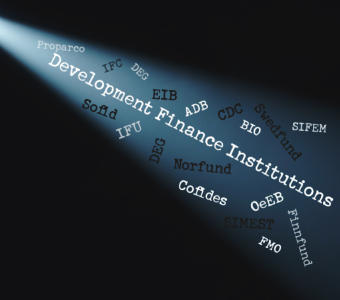The European Network on Debt and Development (Eurodad) launched today the study A Private Affair in which it shows how the world’s biggest multilateral lenders are using billions of euros of loans in developing countries to finance Western-based companies while excluding governments and citizens of countries they are meant to assist from decision-making.
The analysis, which looks among others at loans by the European Investment Bank (EIB) and the International Finance Corporation (IFC), the World Bank’s lending arm, analyses the consequences of the gradual shift from aid to private finance at the core of global and national development initiatives.
By 2015, the development finance institutions suveryed by Eurodad will be lending over 100 billion US dollars, the equivalent of almost two thirds of official development assistance.
Yet this huge amount of money hardly benefits those it is nominally meant to support, the most vulnerable people in developing countries.
The report A Private Affair (pdf) finds, among others, that:
- Companies from wealthier nations have often received the lion’s share of contracts. Investments are sometimes routed through tax havens – which drain much-needed finance from developing countries.
- Companies from low-income countries receive minimal support. For example, only a quarter of companies supported between 2006 and 2010 by the EIB and the IFC were domiciled in low-income countries.
- Developing countries have virtually no say in how these institutions are run, or how the decisions they make. The World Bank’s IFC has the highest proportion of developing country voting share for decision making – but even in this case the voting rights of both middle and low-income countries are less than 30 per cent.
- The financial sector – especially investment banks – have been favoured by DFIs in recent years, receiving on average more than 50% of funding that has been allocated to the private sector, even though serious questions have been raised about the kind of development impact this will have.
One of the examples studied in the report is the case of the EIB’s 14 million euro loan to the resort ClubMed in Morocco. While this amount may be generally added up to the institution’s support for North African whose plight was brought to world attention by the Arab Spring, in reality it is hard to argue that the loan benefits anyone but the European owners of the resort. While the EIB claims that the loan will contribute to sustainable tourism and local employment, local organisations in Morocco denounce the project’s impact on the environment and the land grab associated with the construction of such gated resorts.
A Counter Balance video shows how little the ClubMed resort has to do with development:
More background in this Counter Balance blog post
After going through these startling features of the activity of development finance institutions, Eurodad concludes with a set of recommendations to these institutions:
- to align their investment decisions to developing countries’ priorities and national development plans,
- to demonstrate clear financial and development added value,
- to comply with the guidelines of responsible finance.
Otherwise, if such recommendations are not taken into account, rich countries are only pretending to finance development, when instead they finance their own businesses wreaking havoc in developing countries for private gains.
Never miss an update
We expose the risks of international public finance and bring critical updates from the ground – straight to your inbox.
Institution: EBRD | EIB | World Bank Group | ADB
Theme: Social & economic impacts
Tags: corporations | development | multilateral development banks | private finance | profit

